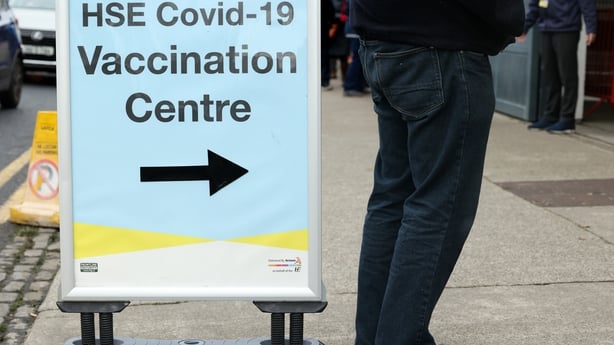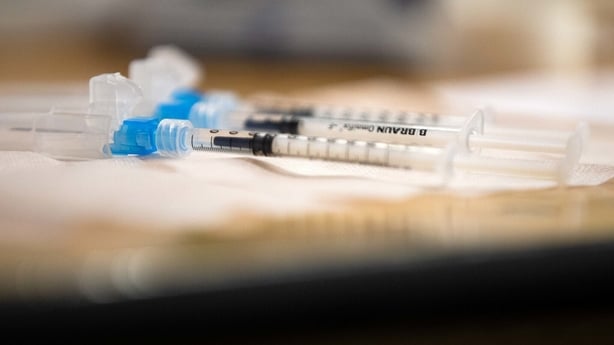The accelerated Covid-19 booster vaccination plan is complex, with many moving parts - here is what you need to know.
At this point, most GPs are expected to be involved in the accelerated plan.
But for now, pharmacists continue to focus on the ongoing programme of vaccinating people aged 50 and older, health staff, people with underlying conditions and pregnant women.
The accelerated booster programme now includes:
- All pregnant women aged 16 years and older
- People aged 40-49 years with this vaccination starting 27 December 27
- People aged 16-39 years will be vaccinated, in descending order of age
- People aged 16-29, who got a Janssen single-dose vaccine, will be offered a booster vaccine, in parallel with those aged 30-39 years.
Over the coming four weeks and beyond, more and more GPs are expected to be involved in this programme.
The Department of Health says this will double the weekly booster doses administered by GPs. Currently GPs are doing around 85,000 doses a week.

GPs will contact their patients about their appointment, patients are being asked not to contact their GP. But be conscious of the fact that your GP may not be involved yet or at all.
The accelerated booster vaccination programme is based, like the previous one, on getting to the most vulnerable, at-risk first.
Some may argue it would be a lot simpler to just throw the doors open to all eligible age groups to get their boosters, but that is not how this has been arranged.
Along with GPs, HSE vaccination centres will offer booster jabs. There are to be more centres and they will be open from 8am to 8pm. Vaccination centres will be open seven days a week, closing only for Christmas Day and St Stephen's Day.

New vaccination centres will open in Richmond Barracks in Dublin; the RDS in Dublin and a new centre is to open in Cork City, in early January.
The capacity in vaccination centres is to be increased - for example at UCD in Dublin, the number of booths will rise from ten to 15.
During the booster campaign many GPs will be deferring routine patient care to next year and only offering urgent care. This carries its own risks and problems for patients.
The options now as regards the booster jabs are for people to:
- Wait for their HSE text appointment
- Go to a walk-in clinic that is open and doing the boosters for their category
- Make an appointment with a pharmacy if they are in the categories that pharmacies are currently doing
- Wait to hear about their GP appointment.
The National Immunisation Advisory Committee (NIAC) said the "temporary" waiver of the 15-minute observation period only applies to people getting booster vaccines and not to those getting their primary vaccinations.
It said the decision to recommend a waiver was because the Omicron variant spreads rapidly and there is an urgent need to give boosters as soon as possible.
NIAC said the risk of a serious allergic reaction is very rare at around 1-10 per million.
It also said people with a history of anaphylaxis should be observed post-vaccination for at least 30 minutes.
The HSE website is the best place to check for details on booster vaccines as it is updated regularly.
GPs have been promised sufficient vaccines from the HSE to deal with what is likely to be a surge in appointments for boosters.
Any delay or mix-up in vaccine deliveries will be a headache for GPs and their patients, if appointments and clinics need to be cancelled due to delivery problems.
Under this new plan, the HSE expects to get up to 300,000 doses a week administered.
It is going to take time and with Christmas Day very near now, many people will have to wait until after Christmas and the New Year to get their booster vaccine.







